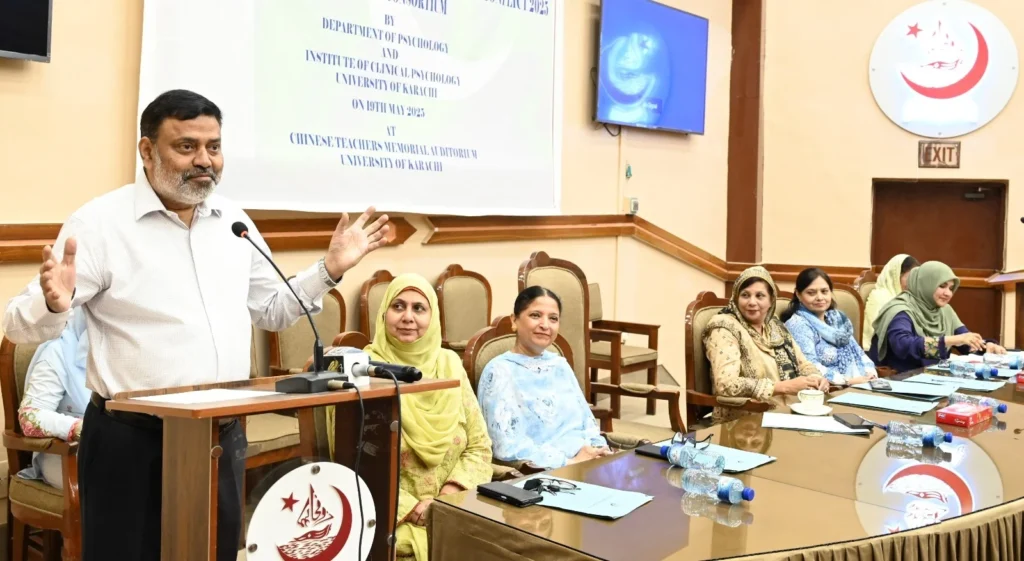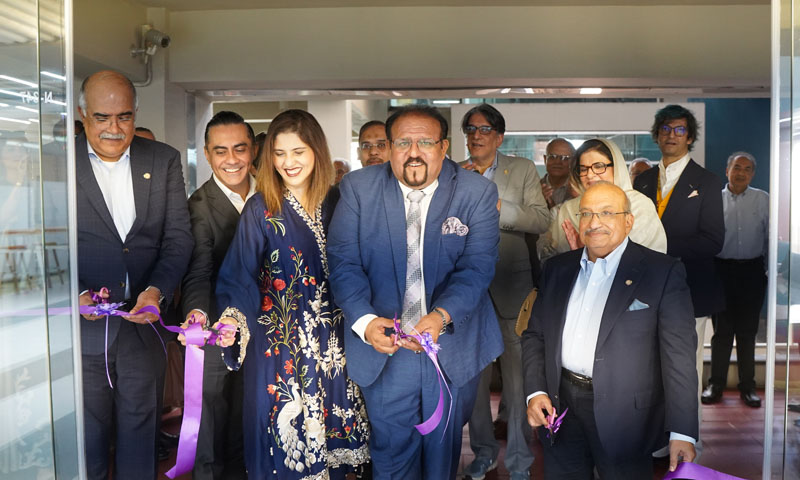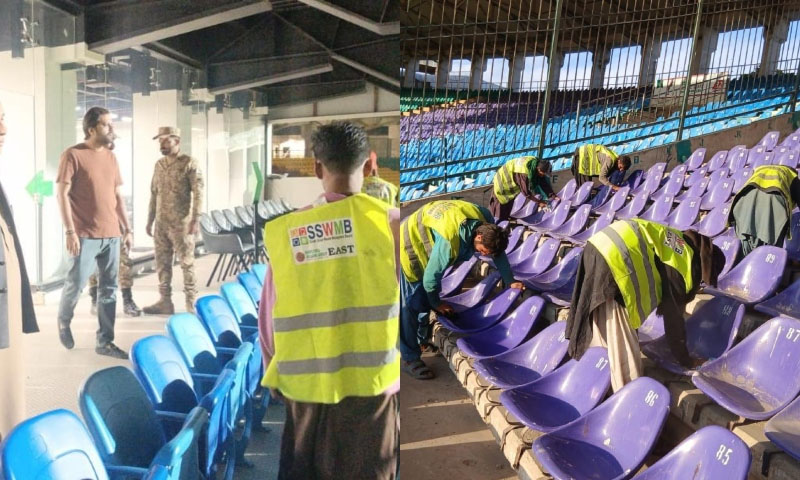- Web Desk
- Jan 12, 2026
KU seminar highlights unity, mental resilience, media awareness as crucial in countering manipulation, disruption
-

- Web Desk Karachi
- May 20, 2025

KARACHI: The Department of Psychology of the University of Karachi and KU’s Institute of Clinical Psychology arranged a seminar on ‘psychological support during India Pakistan conflict 2025 strategic consortium’ held at the Chinese Teachers Memorial Auditorium on Monday.
During his presidential address, the KU Vice Chancellor Professor Dr Khalid Mahmood Iraqi mentioned that in today’s rapidly changing world, psychological warfare has become a powerful and widely utilized tool, employed by both state and non-state actors to achieve strategic objectives.
He emphasized the growing influence of psychological warfare in global conflicts. He stated that understanding emerging trends in this domain is essential to protecting individuals and societies from its potentially harmful effects.
“Today, media’s role is no longer just to disseminate information—it is now responsible for shaping public perceptions as well.” He stressed the necessity of scientific research and strategic planning based on ground realities, adding that modern warfare is not just fought with weapons but also with psychological tactics.
Reflecting on the broader implications of war, the KU VC Professor Dr Khalid Iraqi asserted that conflict does not serve anyone’s true interests. “Peace is the only path forward because, on both sides of the border, we have human lives at stake. War only leads to loss—of lives, economies, and generations burdened by hatred.”
He observed that modern warfare is not confined to weapons—it is a battle of the mind. The tragedy is that we focus more on ourselves and less on society. He remarked that this seminar fostered a thought-provoking discussion on the strategic use of psychological operations, highlighting how unity, mental resilience, and media awareness are crucial in countering manipulation and disruption in modern conflicts.
Adding to the discussion, the KU’s Dean of the Faculty of Arts and Social Sciences Professor Dr Samina Saeed reinforced the reality that war is not a solution—it is itself a problem. She observed that wars bring destruction—loss of lives, devastation of infrastructure, and economic hardship. “They deepen poverty and deprivation while creating extreme challenges for both sides.”
Another speaker, the Chairperson of the Department of Psychology Professor Dr Anila Amber Malik highlighted how psychological tactics are deliberately deployed to manipulate public thoughts, emotions, and decisions.
She warned that misinformation and propaganda weaken trust in institutions, create unrest, and foster mass anxiety. She mentioned that even fabricated threats can trigger widespread fear, disrupting societal stability.
Dr Anila Malik explained that psychological warfare thrives on the tactical use of misinformation, fear, and psychological operations to gain strategic advantage—often without resorting to physical combat. She emphasized the critical role of mental resilience and emotional security in countering these disruptive tactics.
She informed the audience that psychological warfare, involving propaganda, threats, and manipulation, can significantly impact civilian readiness during conflict by influencing morale, trust, and cooperation.
“It can be used to sow fear, undermine support for the opposing side, and encourage resistance or compliance. Psychological warfare, in essence, is the battle for influence. It is the deliberate use of information, misinformation, fear, propaganda, and psychological operations to erode an opponent’s cohesion, sow doubt, and achieve strategic advantage—often without a single shot being fired.”
She shared that psychological warfare is the deliberate use to influence the thoughts, emotions, and decisions. It aims to demoralize, divide, and disorient. It turns perception into a weapon. In today’s interconnected world, with the speed of digital communication, psychological operations can have global effects in real time.
According to her, a well-timed message or fabricated story can disrupt an enemy’s decision-making process, fracture alliances, or provoke internal dissent. As we’ve seen in recent conflicts, cyber influence campaigns, deep fakes, and information blackouts are now standard tools in the arsenal of modern psychological warfare.
“Civilian Readiness and resilience are crucial for navigating the psychological effects of conflict, which can include anxiety, trauma, and even feelings of hopelessness.”
The Director of the Institute of Clinical Psychology Professor Dr Uzma Ali explored the psychological impact of warfare, discussing ways to cope with its effects. She reinforced the idea that unity and mental strength are keys to overcoming adversities.
Meanwhile, Professor Dr. Farah Iqbal from the Department of Psychology underscored the power of knowledge in navigating modern conflicts. She pointed out that contemporary wars rely more on narratives and technology than traditional combat, stating,
“Recent Pakistan-India tensions have proven that our nation is not impulsive—we are rational, peaceful, and deliberate in our decisions.”
She mentioned that this seminar provided a compelling discourse on the evolving landscape of psychological warfare, stressing the importance of media awareness, unity, and mental preparedness in safeguarding societies against manipulation and disruption.




